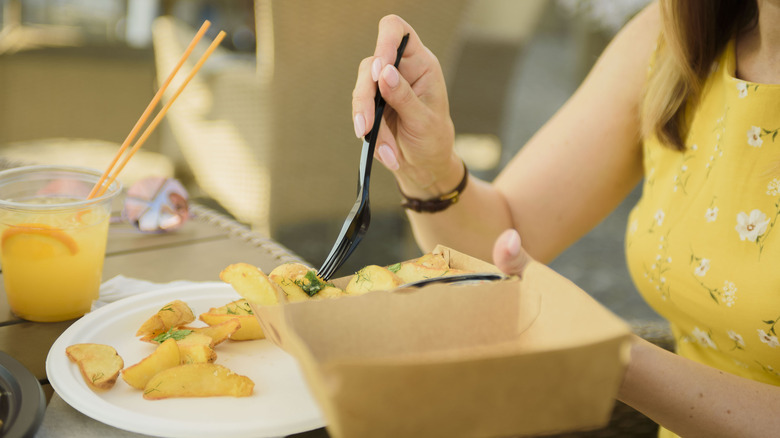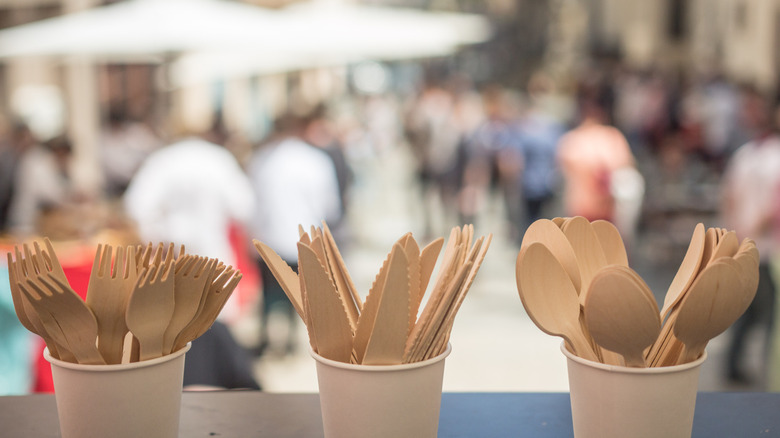The Common Kitchen Item You Should Throw Out & Stop Buying (& What To Use Instead)
Disposable plastic items are things we claim to hate but secretly love. Think about plastic cutlery: We keep the stuff on hand to throw into our lunch bags, to eat on the run, or to make party clean up a breeze. Sure, avoiding them is a no-brainer way to make your home more eco-friendly, but think of all the time we save not having to wash silverware. It turns out that not only does single-use plastic cutlery damage the environment, using it can harm your health. It's time to give up a bit of convenience for our own bodies as well as the planet.
We've known for a while about compounds that leach from plastic containers into our food and drinks. Many of us have swapped out plastic water bottles in favor of ones made from metal or glass, and microwaving food in plastic containers is becoming a thing of the past. But even in the moments plastic cutlery goes from food to mouth, this is enough contact to cause health concerns. Researchers have found that alarming compounds like formaldehydes, styrene, and bisphenol A (BPA) can leach from plastics into our food and then to our bodies. There's a convincing body of evidence that these chemicals can cause cancer and/or disrupt hormonal function.
Another surprising concern, washing plastic cutlery can create an even more harmful situation. Both hot water and detergents cause the plastic to begin breaking down. Because of this, toxins are released into food and drinks.
Smart swaps for plastic flatware
It's time to ditch these plastic kitchen items for safer alternatives, but stop before you sweep your pile of plastic into your garbage can. There are plenty of clever ways to repurpose plastic silverware around the house, so if the alternative use doesn't involve contact with food or drinks, save it from the landfill.
If bioplastics have piqued your interest, slow your roll. Disposable plastics made from plant starches and cellulose are a shocking source of toxic leaching, so please give them a pass. For the rare occasion when we really need convenient throwaways, try cutlery made from plant fiber or wood. Many of these items are compostable, since they're made from bamboo or wood pulp. Before throwing them in on the compost heap, reuse them as quirky plant markers in your garden, or clean them up to use as crafting material.
Although it's not as convenient, a non-disposable option that works well for picnics and sack lunches is second hand metal flatware. Bins of knives, forks, spoons, and more are some of the most common items you'll find at thrift stores. Pick up a few sets to use on these occasions. Since they're not part of your use-at-home set, if you lose a piece, it won't be the end of the world.

